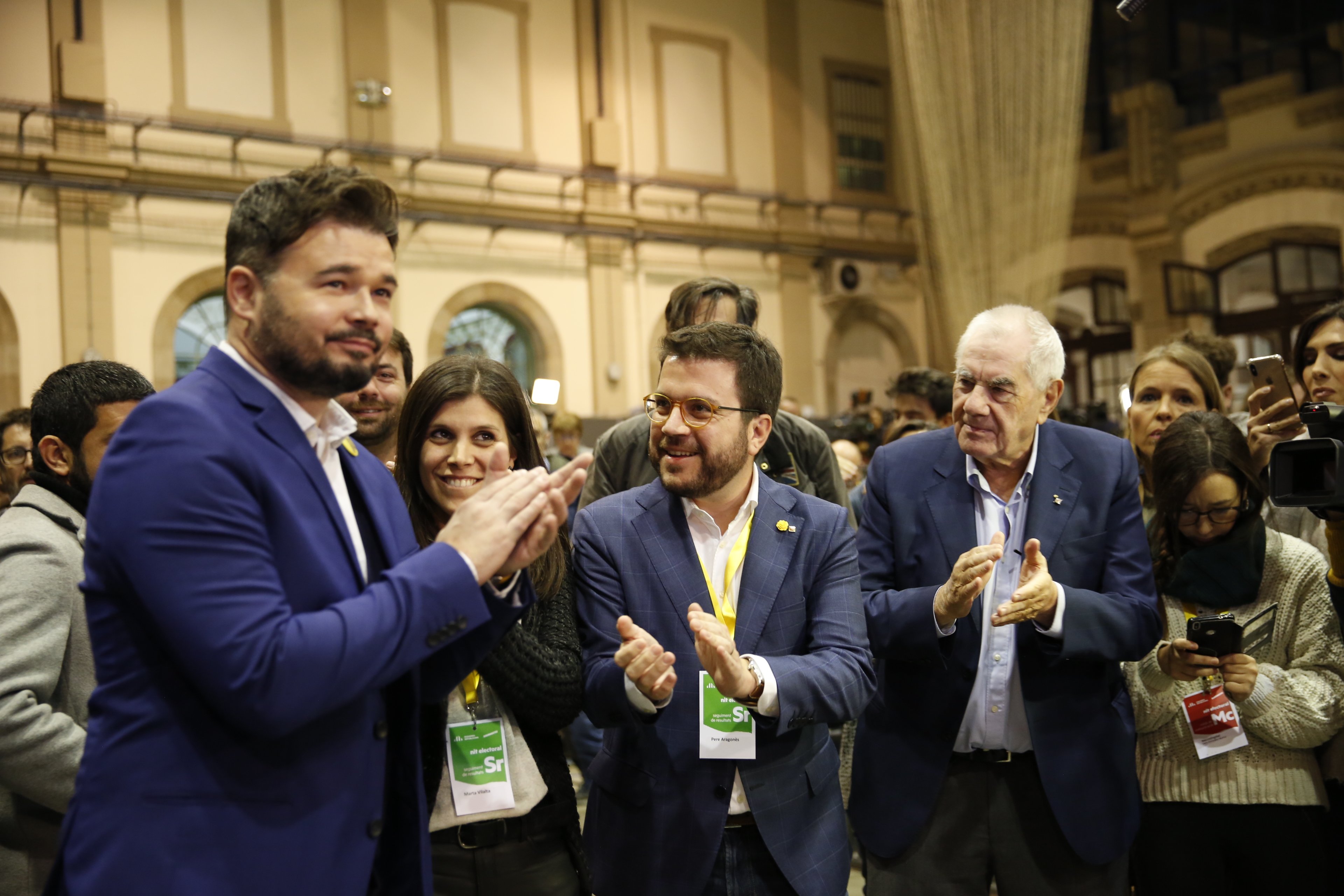Catalan pro-independence party the Republican Left (ERC) has successfully repeated the victory that it won on April 28th by again finishing as the most-voted party in Catalonia in Sunday's Spanish general election, even though the party lost two of its seats. On a night which provided some reasons to celebrate for all three Catalan pro-independence parties, Together for Catalonia (JxCat) also managed to defy the polls, not only maintaining its strength but also gaining an extra deputy, and the third of the Catalan sovereignist parties, the left-wing Popular Unity Candidature (CUP), standing in a Spanish general election for the first time, entered Congress with two seats. This is the map drawn by Catalan votes with the ballots 100% counted.
Thus ERC now has 13 deputies, two fewer than the party won in April, and finished first in the constituencies of Girona, Lleida and Tarragona. The Catalan Socialists (PSC) maintained the 12 seats they won in April and took victory in the fourth and largest Catalan constituency, Barcelona. JxCat added an extra deputy in the Barcelona electorate to rise to 8 deputies overall, while the left-wing Comuns (ECP) maintained the 7 seats they had previously. The pro-independence CUP entered with two seats, both won in the Barcelona electorate.
The other three unionist parties also won two seats apiece: Ciudadanos' (Cs) debacle at Spanish state level was also reflected in their fall in Catalonia, from 5 deputies to 2, and the other parties of the right were nourished by Cs' losses: the Popular Party (PP) rose from a single deputy to two, as did the far-right Vox, rising from one seat to two in Barcelona.
As for the pro-independence vote as a whole, the arrival of the CUP has led to a slight increase in the seats won by parties supporting Catalan independence, rising from 22 seats (15 for ERC and 7 for JxCat) to 23 (13 for ERC, 8 for JxCat and 2 for the CUP). Thus, the movement has reached a total of 23 of the 48 seats that are allocated to Catalonia, falling short by one seat of reaching the symbolic 50% figure - never achieved in a Spanish general election although consistently in recent Catalan elections. In addition, as in the last election to the Spanish Congress, a pro-independence party finished first in a general election in Catalonia: it hadn't happened until April 28th, and now has been repeated twice in a year.
The map below is interactive and links to full breakdowns on voting patterns by provinces, municipalities and neighbourhoods.

